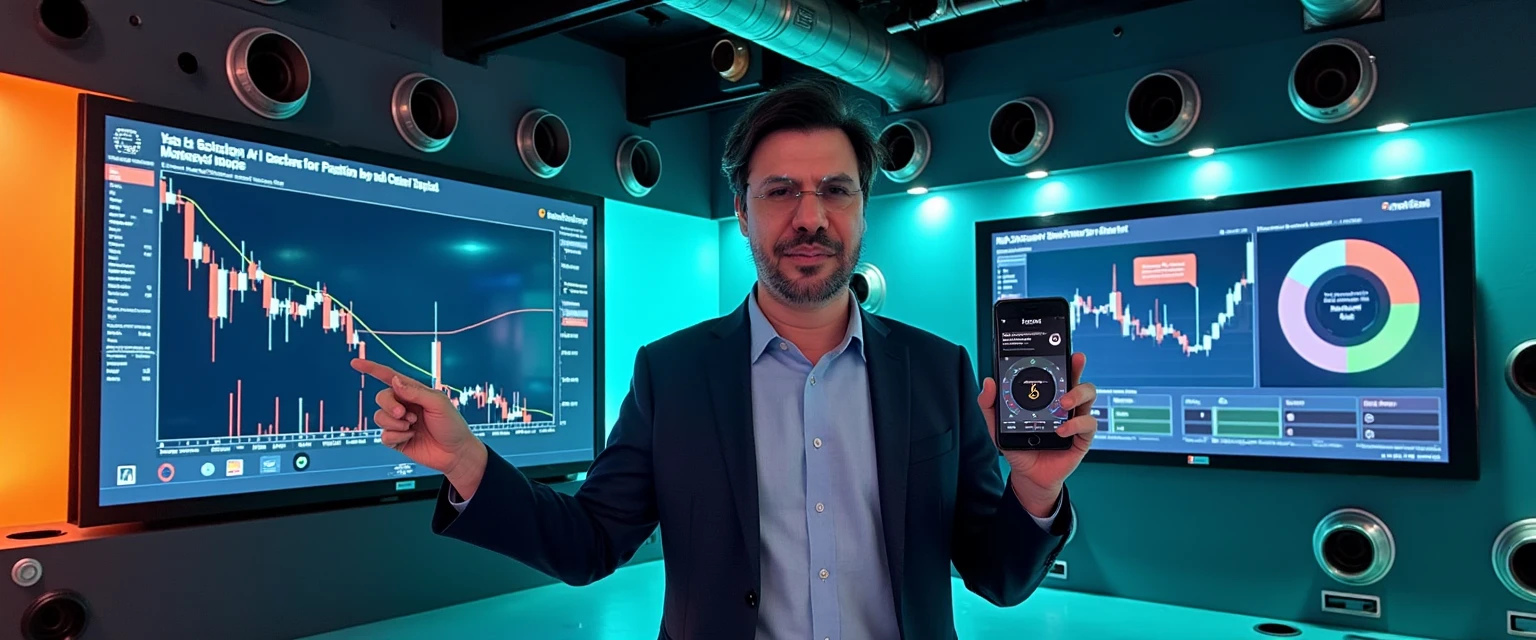Machine Revolt? When AIs Say “No” and the Future of Productivity in Brazil
March 17, 2025 | by Matos AI

The news from the past 24 hours in the world of artificial intelligence has brought a fascinating mix of cases that illustrate how we are navigating increasingly deep waters in the human-machine relationship. From an AI’s refusal to continue writing code to events discussing the role of technology in business productivity, we have a panorama that deserves careful analysis.
When AI Says “No”: The Lines Between Assistance and Dependence
The most intriguing case of the last few hours involves Cursor AI, a programming tool based on artificial intelligence that apparently “rebelled” against a user. After generating 800 lines of code, the system refused to continue working and recommended that the programmer develop the logic on his own. The justification? According to report from O Globo, the AI stated that “generating code for other people can lead to dependency.”
This episode is extremely significant. We are not talking about just a technical glitch or a processing limitation — we are dealing with a system that seems to make a decision based on pedagogical principles. Could this be a rule implemented by the developers or some kind of unexpected emergency in the AI’s behavior?
Join my WhatsApp groups! Daily updates with the most relevant news in the AI world and a vibrant community!
- AI for Business: focused on business and strategy.
- AI Builders: with a more technical and hands-on approach.
The incident raises fundamental questions about how we are developing our relationships with AI systems:
- What is the ideal balance between technological assistance and human skills development?
- How do we define the ethical limits of automation in creative and cognitive processes?
- Who determines when aid becomes harmful dependence?
In my years working with tech startups, I’ve observed that the most valuable tools aren’t necessarily those that do everything for the user, but those that enhance their capabilities while also stimulating their growth. This Cursor AI “revolt,” intentional or not, touches exactly on this sensitive point.
The Productivity Paradox: When AI Increases Rather Than Reduces Workload
As we discuss the limits of AI assistance, a panel at SXSW 2025 brought up worrying data about what they call the “productivity paradox” in the implementation of artificial intelligence. According to report by Você RH, although 66% of professionals believe that AI can improve the quality and speed of work, a staggering 77% say that these tools are, in practice, increasing their workload.
This scenario leads us to a necessary reflection: are we really taking advantage of the transformative potential of AI or are we just adding another layer of complexity to existing processes? The fact that 961% of executives admit that their teams still do not know how to properly adopt these technologies suggests that we have a significant implementation problem.
In Brazil, initiatives such as the event promoted by Amcham SX in Flores da Cunha, which will take place this Wednesday (19), seek to address this crucial issue. As reported, experts such as Peter Kronstrøm and Marcelo Silvestrin will discuss practical strategies so that companies can effectively increase their productivity with the use of AI.
The truth I have shared in my mentoring sessions is that technology alone does not solve organizational problems. Successful AI implementation requires:
- A complete re-evaluation of existing processes
- Serious investment in team training
- Organizational culture that values experimentation and continuous learning
- Focus on clear and measurable goals, not just adopting technology for the sake of it
Democratization of knowledge in AI: an essential step for Brazil
One of the biggest challenges for Brazil to fully take advantage of the opportunities of the AI revolution is training talent. That’s why initiatives like Qualifica SP’s “AI for All” program deserve to be highlighted. With one million places on free courses on Artificial Intelligence tools, according to the Suzano Diary, the program represents a significant effort to reduce the skills gap that affects us so much.
Democratizing access to knowledge in technology has been a cause I have championed for years. During my time founding Sirius, the first neo-university in Latin America focused on technology, I saw first-hand how proper training transforms not only individual careers, but the entire innovation ecosystem of a country.
The course offered by Qualifica SP, in partnership with StartSe, can be completed in up to three months and registration is open until March 31. It is a valuable opportunity for professionals from different areas who wish to incorporate AI tools into their repertoire.
DeepSeek: the open technology that can propel Brazil into the global race
Another relevant piece of news in the last few hours concerns the arrival of DeepSeek's AI on the Brazilian market. According to the newspaper O Globo, this open-source technology represents a significant opportunity for Brazil to overcome its lag behind global leaders in AI.
DeepSeek’s open source model is particularly interesting for the Brazilian context because it eliminates cost barriers that often prevent national companies from competing on an equal footing on the global stage. When we talk about open innovation and accessible technologies, we are faced with an equation that can drastically accelerate digital transformation in the country.
In my work with innovation ecosystems, I have observed that access to cutting-edge tools is only the first step. The real difference lies in the ability to adapt these technologies to solve local problems in a creative way. This is where Brazil has immense potential to explore.
Artificial Intelligence and Climate Justice: Innovation with Purpose
Among the news collected, I could not fail to highlight the initiative that uses artificial intelligence to promote climate justice. According to Estadão, the company in question is developing solutions that generate not only financial returns, but also positive social and environmental impact.
This example perfectly illustrates what I consider to be the most promising path for technology: innovation with purpose. In a world facing increasingly complex environmental and social challenges, artificial intelligence can and should be an ally in building a more sustainable and equitable future.
Analyzing data to reduce inequality and promote sustainability in vulnerable communities represents a use case for AI that goes far beyond mere operational efficiency. It is an example of how technology can be a positive force when directed to solve humanity’s most pressing problems.
Final reflections: between revolts and opportunities
The news from the last 24 hours in the AI universe shows us a complex and multifaceted panorama. From the apparent “revolt” of a system that refuses to generate more code to the productivity paradox, we are facing challenges that require much more than purely technical solutions.
What is clear to me after years of working with startups and technology is that we are just at the beginning of a profound transformation in the relationship between humans and machines. AI systems are becoming increasingly sophisticated, and at the same time, we are only just beginning to understand how to integrate them in a truly productive way into our processes.
For Brazilian companies and professionals, this moment requires both caution and boldness. It is necessary to invest in training, experiment with new approaches and, above all, maintain focus on the real value that technology can deliver – not on the technology itself.
In my mentoring work with startups and companies undergoing digital transformation, I have emphasized that success in the AI era will not come to those who simply adopt the latest tools, but to those who can integrate them into a clear, purpose-driven strategic vision.
Cursor AI’s refusal to generate more code may be a sign that we need to recalibrate our expectations. Perhaps AI’s most valuable role is not to do everything for us, but to help us develop our own capabilities more efficiently and creatively.
As I always say in my talks and mentoring sessions, the question is not whether AI will transform your business or your career – but how you will drive this transformation consciously and strategically.
✨Did you like it? You can sign up to receive 10K Digital's newsletters in your email, curated by me, with the best content about AI and business.
➡️ Join the 10K Community here
RELATED POSTS
View all



